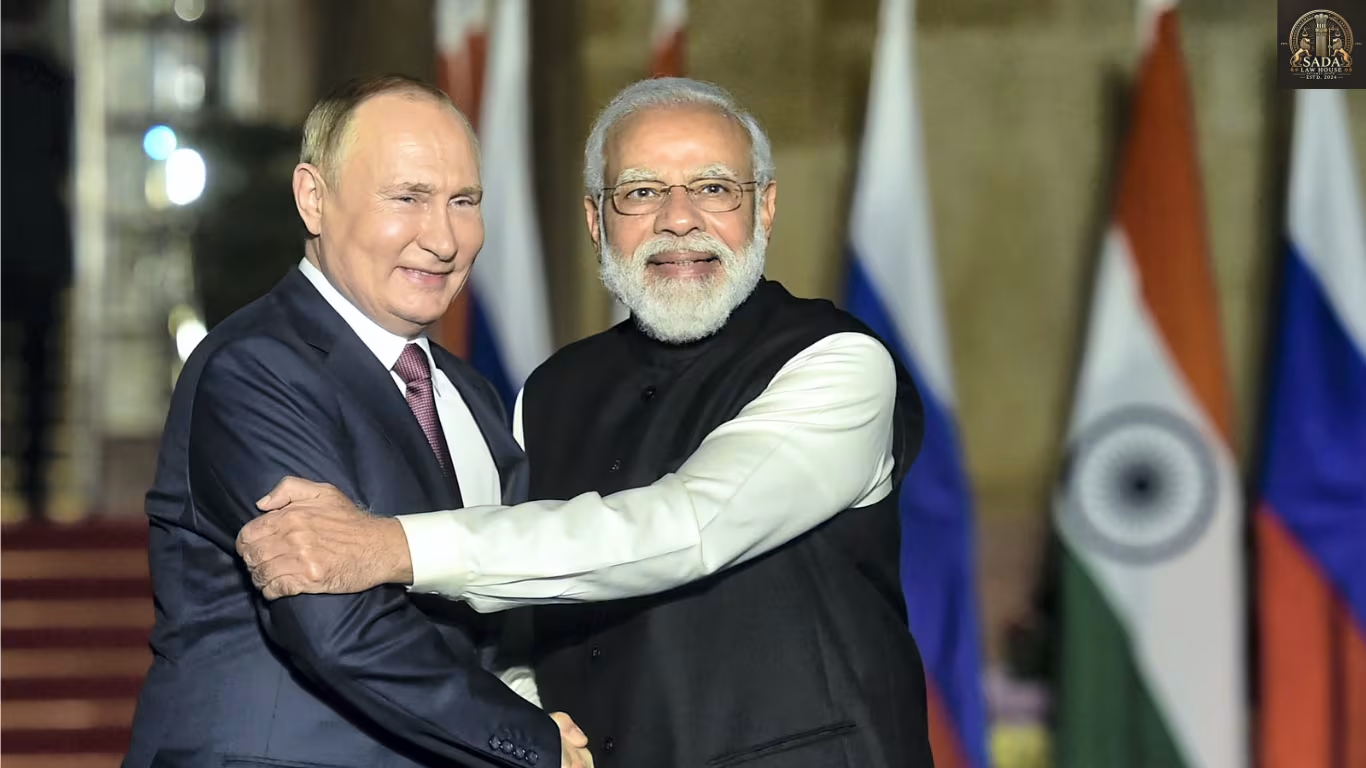RUSSIA REAFFIRMS FIRM ALLIANCE WITH INDIA, TELLS US ATTEMPTS TO UNDERMINE IT WILL FAIL
- Shivani Garg
- 15 September 2025

Introduction
Amid mounting U.S. tariffs and threats of secondary sanctions, Russia has strongly reaffirmed its “time-tested” partnership with India. Moscow declared that any attempt by the United States or NATO to weaken this bilateral relationship is “destined to fail,” underscoring India’s role as a sovereign actor advancing its national interests.
Background & Context
The tensions originated with U.S. President Donald Trump’s decision to impose a 25% base duty and an additional 25% penalty on Indian goods — effectively a 50% tariff — in response to India’s continued import of Russian oil. The U.S. has further warned of potential secondary sanctions targeting countries, including India, that engage in large-scale trade and energy dealings with Moscow.
Russia’s Reaffirmation & Key Messages
The Russian Foreign Ministry issued a statement lauding India for resisting Western pressure and strengthening bilateral cooperation. Key highlights include:
Russia’s assurance that the alliance is rooted in mutual respect, strategic autonomy, and national interest.
Strong condemnation of U.S. and NATO efforts to obstruct ties, with Moscow declaring such moves bound to fail.
Emphasis on practical collaboration — from energy supply and defence projects to civilian industries, logistics, trade in national currencies, and nuclear/space cooperation.
India’s Role & Stance
India has consistently defended its Russian trade policies, framing them as a matter of energy security and sovereign decision-making. External Affairs Minister S. Jaishankar has emphasized:
The “unjustified” and “unreasonable” nature of U.S. tariffs.
The importance of diversifying India-Russia trade and eliminating regulatory barriers.
Expansion of joint ventures and industrial partnerships to strengthen the economic base of the relationship.
Implications & Strategic Signals
The reaffirmation carries several implications:
It highlights India’s policy of strategic autonomy, prioritizing national interest over alignment with Western sanctions regimes.
It signals that U.S. attempts at economic coercion may reinforce, rather than erode, India-Russia engagement.
It complicates Washington’s broader geopolitical strategy of isolating Moscow, showing that major partners like India continue to balance relations independently.
Conclusion
Russia’s statement is not merely symbolic — it reflects the resilience of the India-Russia partnership at a time of geopolitical strain. While U.S. tariffs and sanctions may create short-term challenges, both nations appear committed to reinforcing cooperation across critical sectors. The episode underscores the limits of economic pressure as a tool of diplomacy when confronted with strategic partnerships built on decades of trust and mutual benefit.






